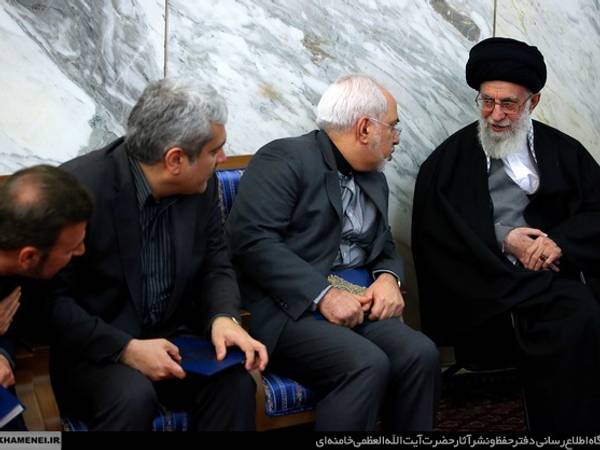Ultra-hardliners in Iran continue to attack Pezeshkian’s government, despite indications that Supreme Leader Ali Khamenei does not oppose the inclusion of former foreign minister Mohammad Javad Zarif in the cabinet.
Majid Ansari, President Masoud Pezeshkian’s legal deputy, along with other government supporters such as lawmaker Ahmad Fatemi, argue that Supreme Leader Ali Khamenei approved a recent government bill to amend the 2022 legislation that ultra-hardliners claim disqualifies Mohammad Javad Zarif from serving as Pezeshkian’s deputy for strategic affairs.
The 2022 law prohibits appointing dual nationals or individuals whose spouses or children hold dual nationality to "sensitive positions" in the government, a restriction hardliners insist applies to Zarif.
This applies to Zarif whose son was born on US soil and is an American citizen as well as many other government officials, particularly diplomats, whose children may have dual citizenship by birth.
Ultra-hardliners accuse Ansari of lying, but on Friday, Mehdi Fazaeli, a member of Khamenei’s office, tweeted that he had informed Pezeshkian two months ago that Khamenei’s office approved amending the legislation.
This, too, has failed to convince ultra-hardliners, who now say they will not accept anything attributed to Khamenei unless they hear it from his mouth.
Zarif who played a major role in Masoud Pezeshkian’s campaign was appointed as his strategic deputy but ultra-hardliners who have never forgiven the former foreign minister for the 2015 nuclear deal with world powers have been trying since day one to push him out of the government.
This led to Zarif’s announcement of his resignation in a pointy Instagram post, only a few days after his appointment in early August. Not before long he used X to announce that he had re-joined the government. The announcement was made after he was seen in Khamenei’s meeting with Pezeshkian’s cabinet on August 27 which implied he was not out of favor.
Khamenei, according to Fazaeli, has specified that dual citizenship of family members should not become an obstacle to an official’s service in the government if the citizenship is bestowed automatically for being born on foreign soil.
Referring to the bill and ultra-hardliners’ opposition to it due to their hostility toward Zarif, the government spokeswoman, Fatemeh Mohajerani told the official news agency (IRNA) Wednesday that “prominent political, cultural and social figures do not have to be assassinated with bullets. Eliminating them [from government] is a kind of assassination, too.”
She also insisted that Zarif and others in government should never be held responsible for “decisions on important and sensitive matters which are never made without coordination with the Leader of the Revolution and his approval.”
Whether Zarif remains in the role of strategic deputy—a non-executive position—is not particularly significant, according to a commentary published Saturday by the Rouydad24 news website. The piece argued that the position is beneath Zarif, suggesting he could have, or should have, been appointed as first vice president.
The commentary criticized ultra-hardliners for diverting domestic policy focus to the question of whether Zarif retains a non-executive position, while the country grapples with pressing crises, including the "new resolution from the International Atomic Energy Agency against Iran, [Donald] Trump's return to power, and the European Union’s hostility."
The commentary also criticized Pezeshkian for optimistically announcing that his government is planning to employ top international experts in the development of the Persian Gulf, Sea of Oman, and Caspian ports because ultra-hardliners will obviously oppose such plans even more strongly.
